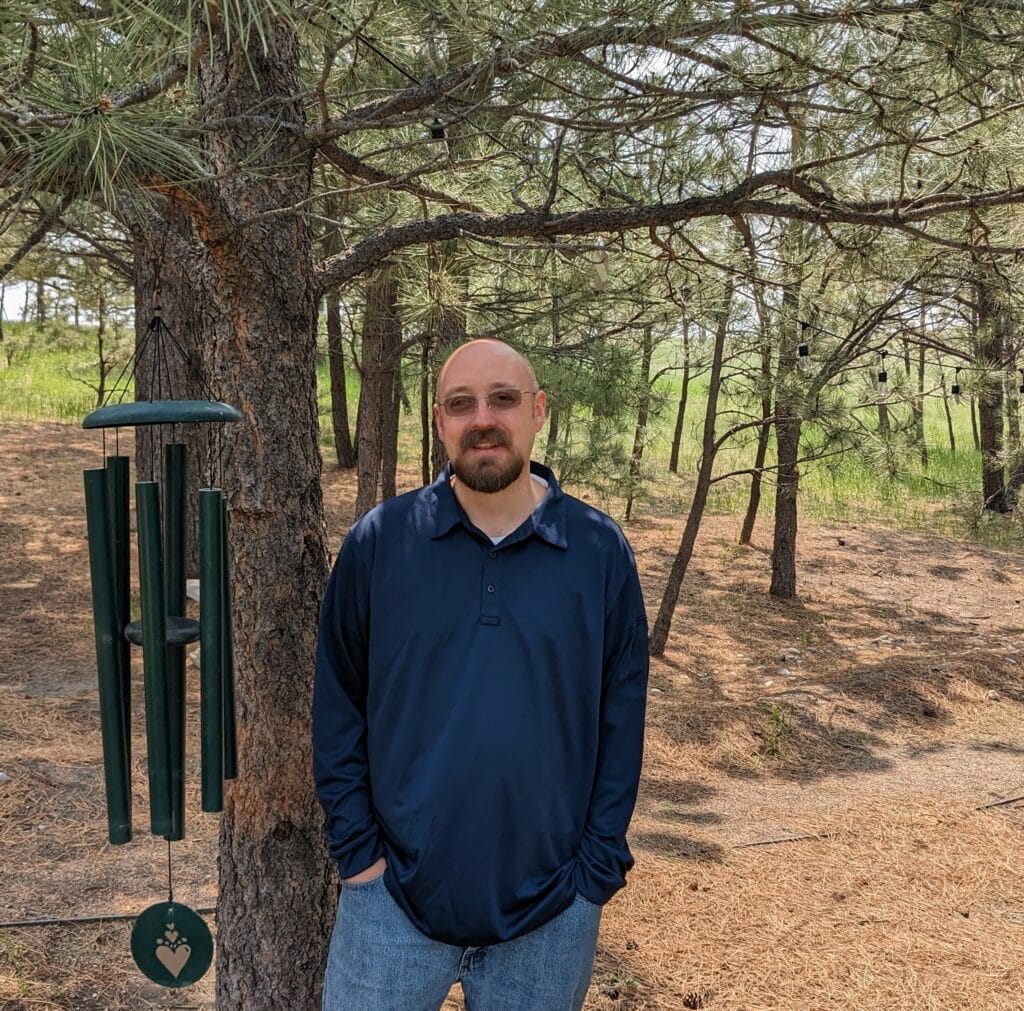Getting Help For an Alcoholic
While some people enter treatment readily, others have reservations about treatment for alcoholism. It could be that your loved one has had negative experiences in the past or has misconceptions about what treatment is like. Alternatively, the man in your life may be in denial about his alcoholism.
Either way, Healing Pines Recovery’s men’s only substance abuse treatment center can help. Our professional interventionists and unique, high-quality addiction treatment services set us apart from other drug and alcohol rehabs. So, what should you know?
In this resource page for family members of men with drinking problems, we will discuss signs of alcoholism to look out for in a loved one, the short and long-term effects of alcoholism, why treatment for alcohol addiction matters, and what Healing Pine’s intervention and addiction treatment services can do for your family.
Request a Confidential Callback
Signs a Loved One Might be an Alcoholic
Knowing the signs a loved one could be an alcoholic can help you identify alcohol addiction in a family member, which might be the first step toward helping the man in your life get addiction treatment. Based on the diagnostic criteria for AUD, common signs of alcoholism include but aren’t limited to the following:
- Inability to stop or reduce alcohol intake, even if they have expressed a desire to cut down.
- Using alcohol even when it is dangerous to do so (e.g., before work or before driving).
- Using alcohol in higher amounts or over a longer period of time than one intended.
- Giving up or spending less time and care on previously enjoyed hobbies, social connections, or obligations, like work, due to alcohol use.
- Continuing to use alcohol despite the negative effects it has on their life, mental and physical health, or interpersonal relationships.
- Spending a significant deal of time using, thinking about, obtaining, or recovering from the effects of alcohol.
- Experiencing withdrawal symptoms upon discontinuation of alcohol use (or when they are unable to drink).
- Needing larger amounts of alcohol than before to achieve the same effects or level of intoxication.
- Increased difficulty tending to responsibilities (e.g., work, school, or family life).
- Cravings or a strong desire to use alcohol.
There are also a number of short and long-term consequences of alcoholism to look out for. While these effects can make a serious impact on a person’s life, treatment can help. You do not have to experience every symptom listed above to have AUD.
Short-Term Effects of Alcoholism
The short and long-term consequences of alcohol abuse can both be dangerous and may differ from person to person. Short-term effects a person may experience from alcohol abuse include but aren’t limited to the following:
- Inflamed stomach lining or GI effects such as bloating, nausea, or indigestion.
- Neglecting self-care (e.g., personal hygiene).
- A heightened risk of accidents or injury.
- Impaired memory or concentration.
- Irritability, agitation, or anger.
- Changes in sleep patterns.
- Appetite or weight changes.
- Poor judgment.
- Slurred speech.
- Mood swings.
- Overdose.
- Coma.
While some of these impacts may occur long-term, they can also emerge suddenly or at any time when a person misuses alcohol.
Don't Let Anything Stop You From Getting Help.
We work with most major commercial insurance plans which can help cover up to 100% of the costs associated with treatment.
Long-Term Effects of Alcoholism
Much like the short-term consequences of abusing alcohol, the long-term effects of misusing alcohol can be devastating. Additional effects of alcoholism may include but aren’t limited to the following:
- A greater risk of some physical health problems (e.g., cardiovascular disease).
- New or worsening mental health concerns (e.g., depression).
- Long-term changes to mood, behavior, or personality.
- Problems in interpersonal relationships or family life.
- Impaired gait or walking steadiness.
- Brain changes.
- Legal problems.
- Jaundice.
- Job loss.
- Death.
If you’re here, there’s hope. No matter the level of your loved one’s addiction or what they’re going through, Healing Pines Recovery is here for your family.
The leadership and staff were committed to my success.
Paul is a man of integrity which flows through his team. I have been to other recovery programs and HPR stands far above them all. The small group structure offers a more intimate and personalized experience. This was so much more beneficial to my recovery than facilities preaching a "one-size-fits-all" solution to larger and fragmented groups. It was like having personal and knowledgeable therapists dedicated to me for a full month! They went out of their way to understand the root of my challenges and construct a path for improvement that is unique and relatable to me. This was a huge benefit!
Jay C
It saved my life, in every sense.
I spent a month at Healing Pines Recovery. The actual location itself is unreal. A beautiful cabin lodge, with gorgeous scenery. The rooms are large, queen beds, very comfortable! Great bathrooms with great showers! There is a pool table, slam jam, (Christine! 😉 frisbee golf, and daily access to a nearby gym. The property also has a pickle ball court that was used daily, Zoey the counselor beat us men constantly!
Clay M
My experience with Healing Pines Recovery has been wonderful.
My husband was their client, and they helped him be able to help himself. He is doing amazing! I think the combination of counseling, physical labor, meditation, AA, and just the beauty of the place itself all had a very positive impact on him. They really cared about him, and that did not stop just because he came home. Also they have counseling for the families and it has really helped me a lot. Heather is awesome! I thank God that we had them in our lives when we were most vulnerable.
Susan M
We wanted to share our gratitude to the staff.
Our son was under the care of Healing Pines recently and we wanted to share our gratitude to the staff. There were many challenges in his pursuing treatment, and thankfully Paul and Heather C helped us navigate all of them skillfully with patience and compassion.
Jim E
You'll get your life back!
Healing Pines Recovery is/was instrumental in setting me up for long term success in my recovery journey. I've been to treatment centers in the past and HPR is nothing like anything I've attended before. They're very small, intimate, and hands-on approach to recovery was exactly what I was looking for when seeking treatment. I knew that a large, one size fits all program like those offered by many other treatment centers in Colorado wouldn't provide me with the help I desperately needed. Paul and his Team are incredible and I would highly recommend HPR to anyone who needs help starting their recovery journey. Big shout out to James for all of his guidance during my time at HPR. His grace, knowledge, understanding, and direction were/are key to my continued success in recovery. One HUGE piece of the puzzle I love is the after care I've received from HPR... I am in constant contact with Paul, James, and many other staff members through the their alumni programs and it has helped me so much with life after HPR. This program was truly a miracle in my life and I know it will be for many other men struggling with addiction and/or alcoholism. You'll get your life back!
Nicholas P
This is truly a great recovery facility.
My learning experience here was something I’ll take with me throughout my whole life. The staff here will always be a part of my family and I am beyond thankful for everything they have done and continue to do for my well-being.
Gunnar P
I can't speak more highly of Healing Pines Recovery & Addiction Center.
It is located in a beautiful Colorado location with lots of outdoor activities and fresh air. They have a very knowledgeable and professional staff that goes above and beyond to meet your needs.
Riley K
I couldn’t have been at a more amazing place to begin this journey.
Seriously an amazing place. Everything from how beautiful the house and the property it sits on down to every person staffed there was nothing less than perfect. More than highly recommended in every sense. If you’re reading this and trying to find the right place for treatment and recovery I would absolutely look no further. Everyone’s recovery is different and we all need a comfortable place with people we can trust through this battle, healing pines understood that everyone’s path is different and they 100% cater to that. I couldn’t have been any luckier with finding Healing Pines. I won’t go any deeper and start to thank everyone there individually, But I want to express my gratitude to everyone on the HEALING PINES TEAM. Without you all, my path in sobriety would not look anywhere near the way it looks today. Seriously from the bottom of my heart thank you!
James M
How to Talk to Your Loved One About Alcohol Abuse
Talking to your loved one about their addiction can change or save their life. Interventions can come with an extensive range of positive outcomes. For example, an intervention can help the man in your life realize he needs help, or he may enter treatment following the intervention. Here are some factors to consider to make the conversation with your loved one as successful as possible.
Alcohol and drug interventions have a high success rate. With a professional interventionist, you can prepare to speak with your loved one about alcoholism and develop a plan with a trained addiction expert.
Professional interventionists generally advise that you find a potential treatment placement for your loved one before talking to them about their addiction. That way, if they agree to get help, everything will be in place ahead of time.
Our staff members will talk with your loved one, dispel myths about addiction treatment, and go over what sets Healing Pines Recovery’s approach apart from other treatment experiences. Once they are ready, we offer a free intake assessment to help gauge the treatment needs of incoming clients.
Get Help for Alcoholism in Men at Healing Pines Recovery
Getting help for an alcoholic in your life matters. Even if you have moments of positivity and hope, professional treatment increases the likelihood that a person will reach recovery tremendously. Healing Pines Recovery helps men overcome addiction by any means necessary and takes a whole-person approach to substance abuse treatment.
Here are some features that set Healing Pines apart:
- Facilities and Amenities: Healing Pines Recovery is located on 40 acres of land, with walking trails, mountain biking, animal interactions, a fitness center, games, and a broad range of other amenities.
- Evidence-Based Treatments: Our experts use a broad range of evidence-based treatments for addiction and dual diagnosis disorders. The program includes a combination of group, individual, and family therapy sessions.
- Holistic Treatments: Supportive holistic treatments help the body and soul heal in combination with evidence-based modalities. Examples include but aren’t limited to massage, aroma therapy, sound therapy, yoga, tai chi, and reiki.
- Flexible Technology Policy: Healing Pines Recovery allows clients to bring electronic devices.
All men at Healing Pines get a customized treatment plan, which will focus on his specific treatment needs and goals. We help every man make a relapse prevention plan before he exits treatment and have a strong alumni program available to help former clients maintain recovery.
Learn More About the 5-Star Treatment Experience at Healing Pines
Getting help for an alcoholic can feel daunting, but the right resources make a world of difference. To find out more about how Healing Pines can help your family, contact us today. We’re here to answer your questions, verify insurance coverage for potential clients, discuss intervention services, or book a tour of our facilities, all 100% free of cost. To connect with Healing Pines, submit the contact form on our website or give us a call at 720-575-2621.

Get the Help You Deserve at Healing Pines Recovery
Men may be more likely to use substances and become addicted to them in the long term, but that doesn’t mean men have to be less likely to successfully recover. In fact, many of the obstacles that hold men back can be easily overcome with a change in perspective. While we know it’s not always easy to take the first step, we do believe that there’s strength in knowing when it’s time to seek help. Sometimes, the best way to support those you love and achieve your goals is by putting yourself first.
Addiction can be an isolating experience, but you don’t have to go through it alone. Healing Pines Recovery is here to help. Our Colorado men’s drug rehab center is dedicated to giving people like you the tools they need to thrive. Your journey will be as unique as you are. Our goal is to provide the care, support, and encouragement you may need to discover what it looks like for you. Get started today by calling us at (720) 706-7980 or contact us using our online form.
Schedule a Tour Today
Come discover why Healing Pines Recovery is you top choice for men’s addiction treatment in Colorado and beyond.
Begin Your Journey & Escape Addiction
The first step can be the hardest. Fill out the form or call us at (720) 575-2621. You will be connected with a Healing Pines Recovery specialist who can answer your questions and help you get started.
Let Us Help You
Speak to Someone Right Now






